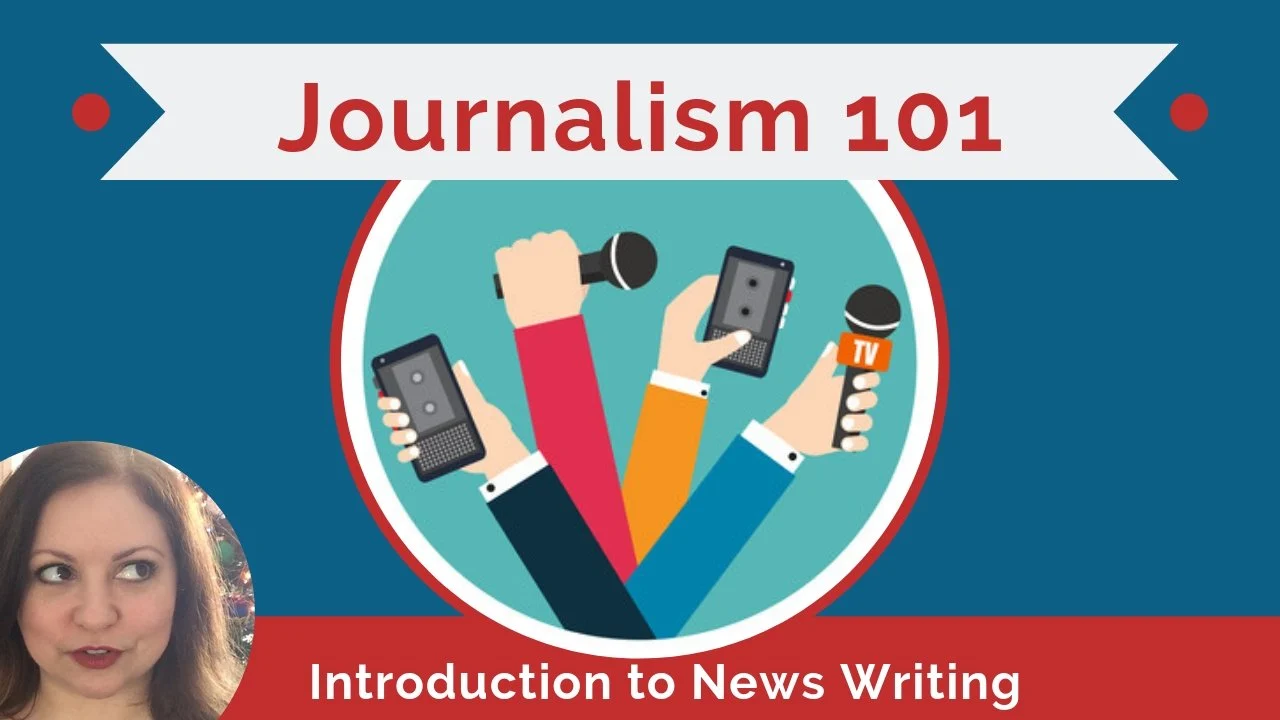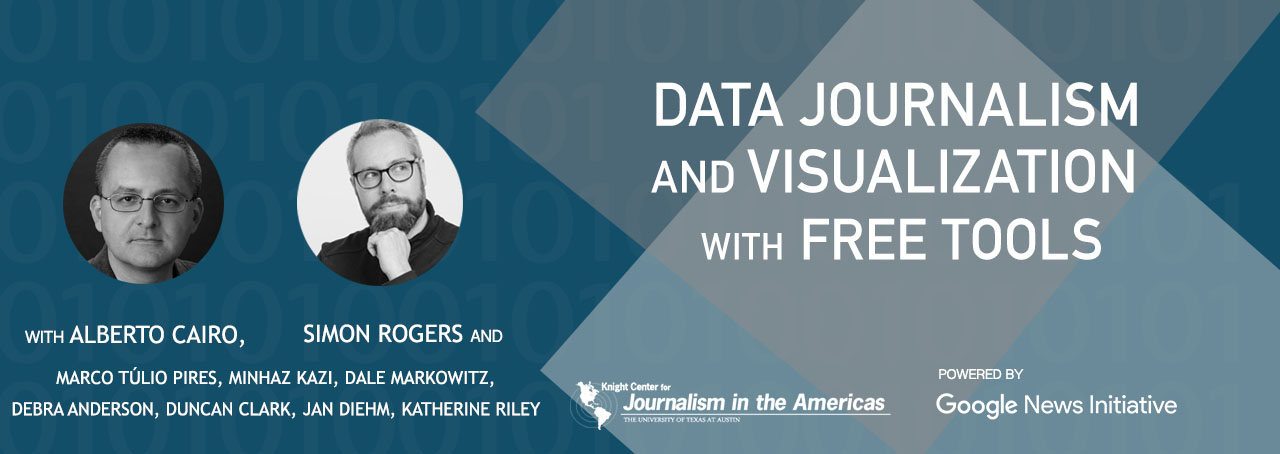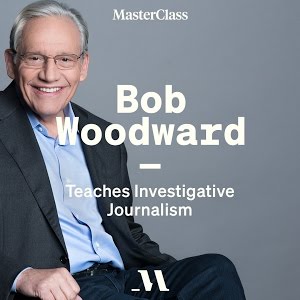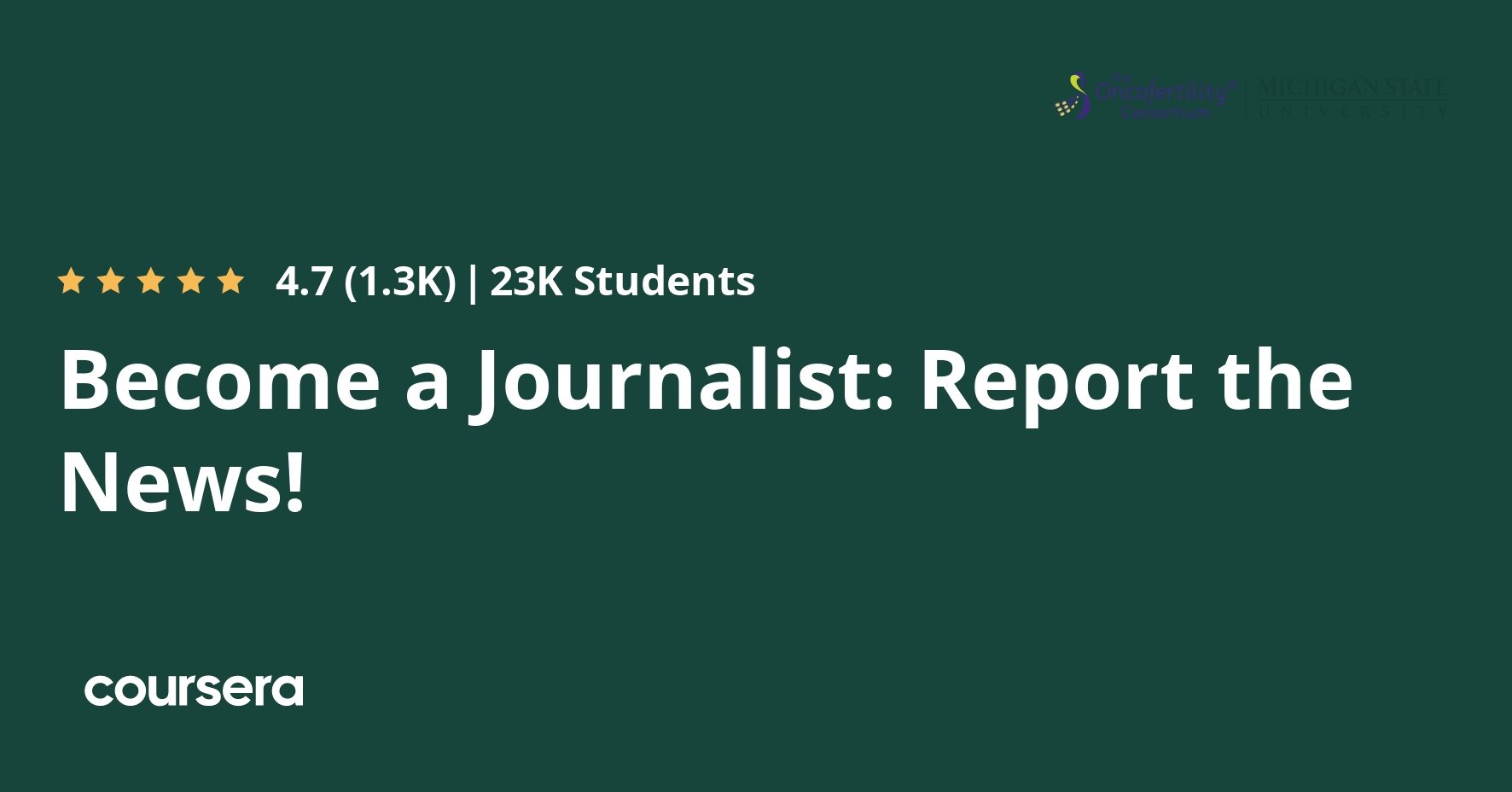The news industry is in a state of flux. The rise of digital media opens up a world of possibilities that can enhance the way we perform tasks and make it even easier to achieve our goals achieved. This has led to a growing demand for journalists who are comfortable with new technologies and understand the latest trends and dynamics.
Journalism is an ever-evolving field. With the shift into the era of the internet and social media, the way news is reported and consumed has changed dramatically in recent years. The journalism industry has been making its move into this new world. Aspiring journalists must stay up-to-date with the latest online tools and platforms to stay ahead of the curve.
If you’re looking to get into online journalism, or if you’re already working in the field and want to up your game, then you’ll need to know where to find the best online journalism courses, as these courses can help you sharpen your craft and learn new skills.
In this article, we’ll look at 12 of the best online journalism courses. These courses are offered by some of the leading journalism schools or online platforms in the country and are available both for paid and free. And the best part is that they’re all available online, so you can study at your own pace and from the comfort of your own home.
Top Online Journalism Courses (2023): Free and Paid Options
There are multiple options available when it comes to choosing a top-notch journalism course. With the rise of new and innovative technologies, now is the perfect time to upgrade your skills!
If you’re looking for the best online journalism courses in the country, then you can enroll in one of these 12 great options:
1. Journalism Fundamentals: Craft & Values [Pyotner]
In this introductory professional development course, you’ll understand fundamental concepts in journalism and learn how to apply these concepts in your work. You’ll also learn to evaluate your journalism so that you can improve your work and give context and meaning to readers.

You’ll go far beyond just learning the basics – you’ll use your talents to gain a deeper understanding of news reporting and production. You’ll also explore how journalists think critically and make important decisions so that you can become a successful communicator in any medium.
Some of the key insights on the course include:
- Cost: Free
- Instructor: Mark Miller
- Beginner Level Course
2. Journalism 101: Introduction to News Writing [SkillShare]
This course is designed to teach beginners how to establish credibility, credibility in their organization and as a practitioner. Furthermore, you will learn why journalism is important and how news is written and reported. It starts with the basics of who, what, when, where, and why. Next, you’ll learn how to find and use sources, how to write a lead, and how to structure a news story.

In this course, you will learn the basics of news writing, including how to structure a story, use proper grammar, and fact-check your work. You will also get an introduction to the different types of journalistic writing, such as feature stories, investigative pieces, and opinion columns. You’ll also touch on some of the ethical considerations involved in journalism.
Some of the key insights on the course include:
- Cost: Subscription-based
- Instructor: Donna DeRosa
- Beginner Level Course
3. How to be a Journalist – The Complete Guide to Journalism [Udemy]
This course is designed to provide students with a comprehensive understanding of journalism, including its history, principles, and techniques. It covers a wide range of topics related to journalism, including news writing and reporting, investigative journalism, feature writing, media ethics, and the role of the journalist in society.

It also includes practical skills such as how to interview, research, and write news articles. It is a valuable course for anyone interested in pursuing a career in journalism or simply wanting to learn more about the field.
Some of the key insights on the course include:
- Cost: paid
- Instructor: Tony Bosworth
- Complete Guide to Becoming a Freelancer
4. Data Journalism and Visualization with Free Tools [Journalismcourses]
This course will help you shape your skills as a journalist by giving you a practical approach to building and maintaining newsrooms in this digital age. You’ll learn the different types of news that can be produced and how real-time journalism works. This is a groundbreaking program that will allow students to combine their creativity with data analysis to create compelling stories.

Discover the many free resources available to you that will help enhance your data journalism and visualization projects. In this six-week online course, you’ll learn how to find, clean, and analyze data to tell stories that inform and engage your audience. You’ll also learn how to create visualizations that effectively communicate your data-driven stories.
Some of the key insights on the course include:
- Cost: Free
- Instructor(s): Alberto Cairo, Simon Rogers, Marco Túlio Pires
- Intermediate Level Course
5. Data Literacy for Journalists [Futurelearn]
Data literacy is increasingly important in today’s world, and this program offers a great opportunity to hone your skills. With data-informed storytelling, you can craft stories like never before. A course from FutureLearn that will teach you how to find, understand and communicate data. You’ll learn about different data visualization techniques and how to use spreadsheet software to analyze data.

Are you ready to explore the world of data? You’ll be covering everything from gathering and analyzing data to storytelling with your data. You’ll also learn how to use Freedom of Information requests, clean our data, understand it, and analyze it deeply while considering ethical guidelines that make our findings accessible and compelling. By the end of the course, you’ll be able to create your own informative data-driven stories.
Some of the key insights on the course include:
- Cost: Subscription-based
- Instructor(s): Jingrong Tong, Claire Miller
- Intermediate level course
6. English for Journalists, Part 1 [Edx]
This course is an introduction to English and journalism that can be taken via the edX platform. It’s ideal for those who work in journalism, journalism faculty, and non-journalism students who want to improve their English language skills, with a focus on reading, writing and speaking.

The course covers a range of topics related to journalism, such as media ethics, news gathering and reporting, and digital journalism. Participants will also learn key grammar and vocabulary skills that are essential for effective communication in journalism.
Some of the key insights on the course include:
- Cost: Free
- Instructor: Maggie Sokolik
- Intermediate level course
7. Video Journalism: Storytelling Techniques [LinkdIn Learning]
Video journalism is a booming field, and with good reason. Videos can engage viewers like no other medium can. They are also incredibly powerful storytelling tools. It can be used to report the news, produce documentaries, or create online content. Video journalism often happens in real-time and can be used to capture breaking news or to tell human interest stories.

In this course, you will learn essential video storytelling techniques that will help you create engaging and impactful videos. You will learn how to plan and structure your videos, shoot footage that packs a punch, and edit your videos for maximum impact. You’ll also learn about the different types of journalistic video genres and how to use them to tell a story. By the end of the course, you’ll have a solid understanding of video journalism and be able to start creating your own creative stories.
Some of the key insights on the course include:
- Cost: Subscription-based
- Instructor: Jeff Sengstack
- Beginner + Intermediate level course
8. How to Become a Purpose-Driven Journalist [LinkdIn Learning]
By the end of this course, you will be able to understand how to develop a brand for yourself as a journalist and use this brand to build your reputation. You will also learn what it takes to build a successful freelance career, define your purpose as a journalist, and use this purpose strategically to attract clients.

Journalists are using technology to keep their jobs. You’ll be able to get hands-on experience using emerging tools like data journalism, big data, and social media in your daily reporting. You’ll see how social media has changed the way journalists tell stories from the field.
Some of the key insights on the course include:
- Cost: Subscription-based
- Instructor: Norah O’Donnell
- Beginner level course
9. Master Class Bob Woodward [Masterclass]
In the course, Woodward shares his insights on investigative journalism and teaches the techniques he has used throughout his career. The course is designed for both aspiring journalists and those with experience who want to refine their skills.
The course covers finding and cultivating sources, interviewing, researching and verifying information, and writing compelling stories. Woodward also shares his experience working on some of the biggest stories and offers advice on how to navigate ethical dilemmas in journalism.

He will discuss his insights and observations on Watergate, one of the most famous American political scandals of all time. The MasterClass, with Bob Woodward, is an excellent opportunity for anyone interested in investigative journalism to learn from one of the most respected and experienced journalists in the field.
Some of the key insights on the course include:
- Cost: Subscription-based
- Instructor: Bob Woodward
- Intermediate to Advanced level course
10. Become a Journalist: Report the News! Specialization [Coursera]
With the Specialization Become a Journalist: Report the News! from Coursera, you’ll learn everything you need to get started in this field. You’ll explore the basics of journalism, from writing techniques to journalistic ethics. You’ll also learn how to find and report stories and how to use new media to reach your audience. By the end of the Specialization, you’ll be able to produce your own news stories and report the news like a pro!

Throughout the specialization, you will also learn about the ethical considerations involved in journalism, such as accuracy, fairness, and objectivity. This course introduces you to the basic principles of journalism and helps you understand what makes a story newsworthy. As you gain knowledge on these topics, you’ll be able to develop confidence in your newsgathering abilities, which will lead to successful results.
Some of the key insights on the course include:
- Cost: Paid
- Instructor(s): Joanne C. Gerstner, Eric Freedman, Joe Grimm
- Beginner level course
11. Digital Journalism and Media (Bachelor of Arts) [PennState]
The Pennsylvania State University offers a well-rounded undergraduate education in digital journalism and media. Students in the program will receive a strong foundation in the liberal arts, as well as communication theory and practice. The curriculum emphasizes writing, editing, and visual communication and provides students with the opportunity to learn how to use the latest digital media tools and platforms.

Graduates of the program will be prepared for careers in digital media, including journalism, public relations, and marketing. They will also be prepared to pursue further study in graduate or professional programs. The course is a blend of news writing, media law and ethics, economics, advertising, politics, public opinion, media production, and reporting.
Some of the key insights on the course include:
- Cost: Paid
- Instructor: Multiple professors available
- Intermediate to Advanced level course
12. Investigative Journalism [Udemy]
Udemy offers a course in Investigative Journalism from some of the top investigative journalists in the field. The course is designed to help you learn the skills you need to pursue a career in investigative journalism. It includes instruction on investigative journalism’s legal and ethical considerations, such as protecting sources and avoiding defamation. Additionally, the course covers strategies for building and maintaining relationships with sources and techniques for uncovering and exposing corruption and wrongdoing.

The course covers topics such as developing story ideas, conducting research, interviewing sources, and writing compelling stories. You’ll also learn how to use different media to your advantage and how to work with sources. By the end of the course, you’ll have a strong understanding of what it takes to be an investigative journalist.
Some of the key insights on the course include:
- Cost: paid
- Instructor: Anderson School of Journalism
Intermediate to Advanced level course
Why Should You Invest in an Online Journalism Course?
There’s no doubt that journalism is undergoing a massive transformation. With the rise of new technologies, the way we consume news is transforming. Fortunately, there are plenty of resources online that can help journalists sharpen their craft and master the necessary skills for success.
With online journalism courses, you can access tons of quality lessons from the comfort of your own home. There are an array of courses available out there, each offering unique and specialized knowledge on any given topic. This is a great way to stay on top of the latest trends and adapt quickly to an ever-changing industry.
Here are some reasons we think online courses are the best way to improve your journalism skills:
1. You Can Take Classes at Your Own Time and Pace
Imagine having a full-time job, a family to take care of, or any other commitment that makes it hard to find time for school. With the flexibility to schedule your learning around other commitments, it’s never been easier to achieve your goals. This flexibility can be a great benefit for busy adults who want to further their education but may not have the time to take traditional classes.
2. You Can Learn from The Best Journalists Worldwide
There are many great journalism schools in the country and even top-notch online journalism course platforms that offer some of the best instruction out there. With the option of taking online classes, you can access the best instruction in the country, no matter where you live. In addition, an online journalism course can be a great way to network with other professionals in the field. You can connect with fellow students and build relationships.
3. Online Journalism Classes are Flexible
Online journalism courses can be structured in a way that allows students to learn in their own time. You can check out course material at your own pace and study as often as you like. And since most journalism courses are now offered online, so there’s no need to worry about access or availability.
4. Online Journalism Classes are More Affordable
Traditional journalism schools are becoming increasingly expensive; many students can’t afford to take on the debt. The best online journalism courses are offered online at a fraction of the cost that regular in-person classrooms would cost. And with some scholarships available for online students, finding low-cost options is easier than ever.
5. Taking an Online Course Provides You with New Skills and Tools
Technology is transforming how we keep up with current events and how journalists report stories across the globe. From live reporting tools to video recording equipment and drone technology, an online journalism course will equip you with new tools, best practices for reporting, and skills to write news stories relevant to changing landscape.
The Final Word
Journalism is a popular and well-respected field, and a degree in journalism will look great on your resume. You’ll work with some of the most powerful people in the world and make a difference by reporting important stories that might otherwise go unreported.
As you can see, there are some great courses available that will help you become a journalist. If you are starting in journalism or looking to develop your skills in a specific area, there is an online course available that can help you achieve your goals.
Whether you are interested in print, broadcast, or digital journalism, there is a course available that can help you develop the skills you need to succeed in the field. By taking advantage of these online journalism courses, you can gain a competitive edge and position yourself for success in the ever-evolving world of journalism.





